Abstract
Leaves of terrestrial plants are aerobic organs, and are not usually considered to possess the enzymes necessary for biosynthesis of ethanol, a product of anaerobic fermentation. We examined the ability of leaves of a number of plant species to produce acetaldehyde and ethanol anaerobically, by incubating detached leaves in N2 and measuring headspace acetaldehyde and ethanol vapors. Greenhouse-grown maize and soybean leaves produced little or no acetaldehyde or ethanol, while leaves of several species of greenhouse-grown woody plants produced up to 241 nanograms per milliliter headspace ethanol in 24 hours, corresponding to a liquid-phase concentration of up to 3 milligrams per gram dry weight. When leaves of 50 plant species were collected in the field and incubated in N2, all higher plants produced acetaldehyde and ethanol, with woody plants generally producing greater amounts (up to 1 microgram per milliliter headspace ethanol concentration). Maize and soybean leaves from the field produced both acetaldehyde and ethanol. Production of fermentation products was not due to phylloplane microbial activity: surface sterilized leaves produced as much acetaldehyde and ethanol as did unsterilized controls. There was no relationship between site flooding and foliar ethanol biosynthesis: silver maple and cottonwood from upland sites produced as much acetaldehyde and ethanol anaerobically as did plants from flooded bottomland sites. There was no relationship between flood tolerance of a species and ethanol biosynthesis rates: for example, the flood intolerant species Quercus rubra and the flood tolerant species Quercus palustris produced similar amounts of ethanol. Cottonwood leaves produced more ethanol than did roots, in both headspace and enzymatic assays. These results suggest a paradox: that the plant organ least likely to be exposed to anoxia or hypoxia is rich in the enzymes necessary for fermentation.
Full text
PDF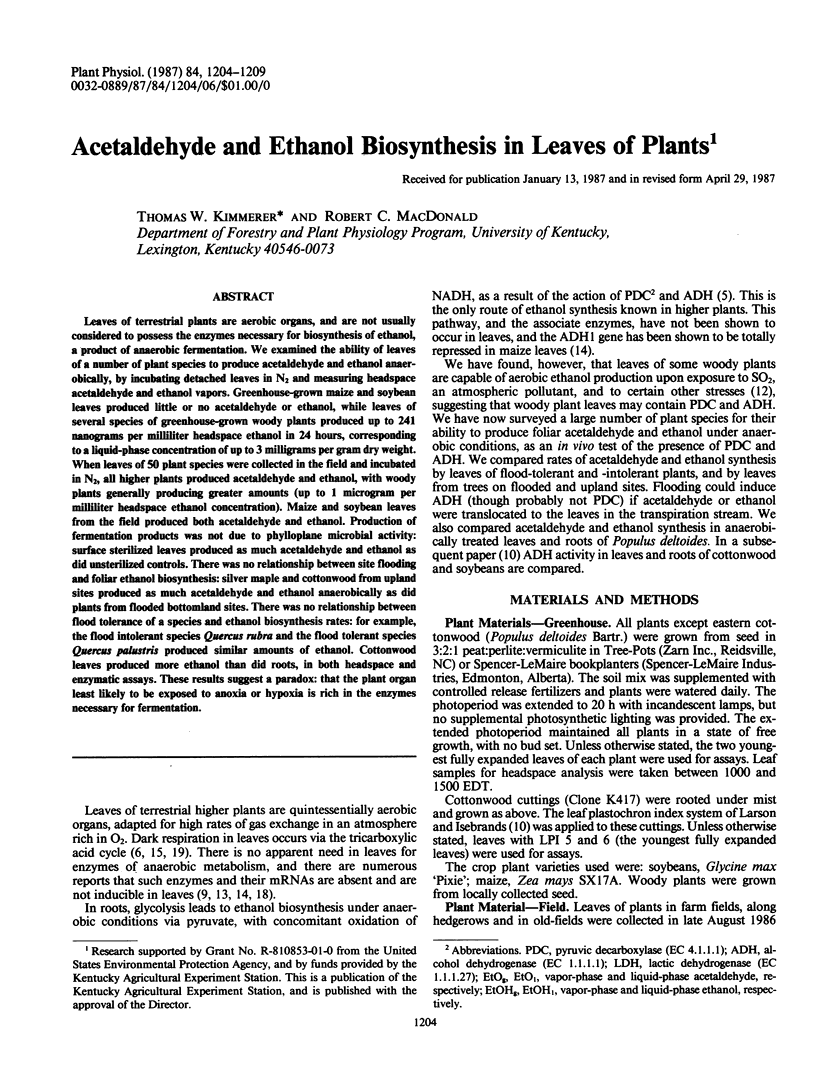
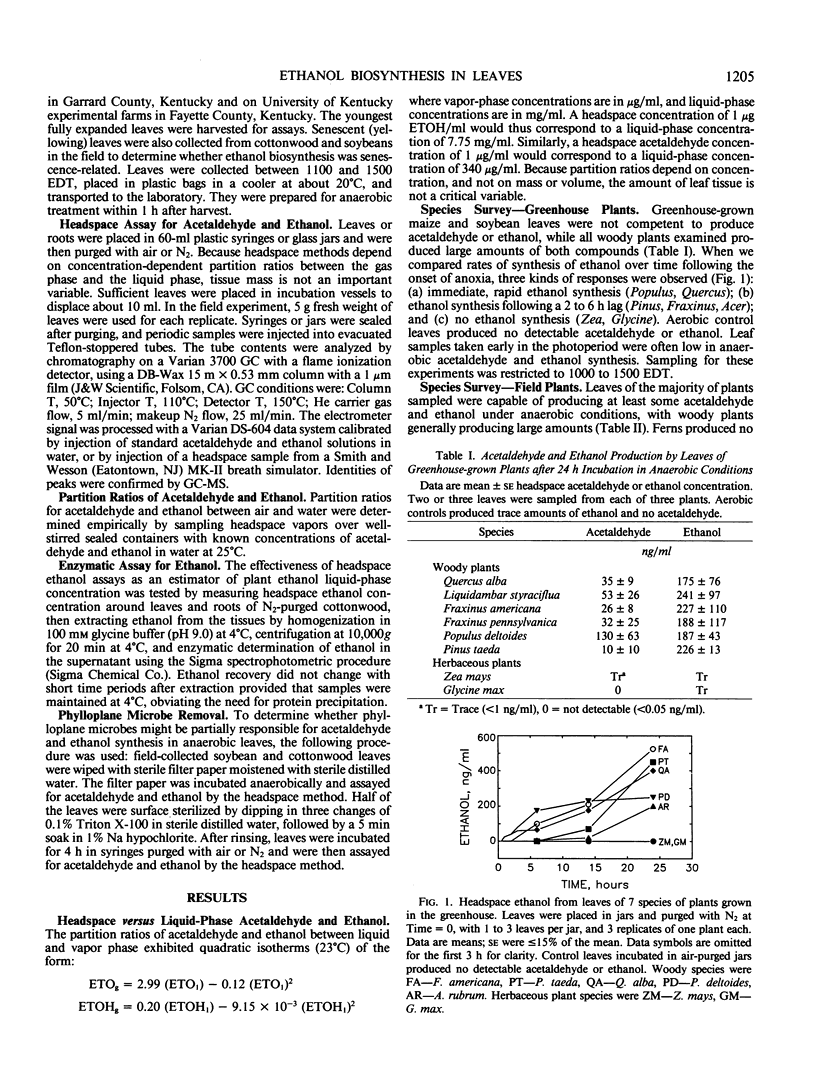
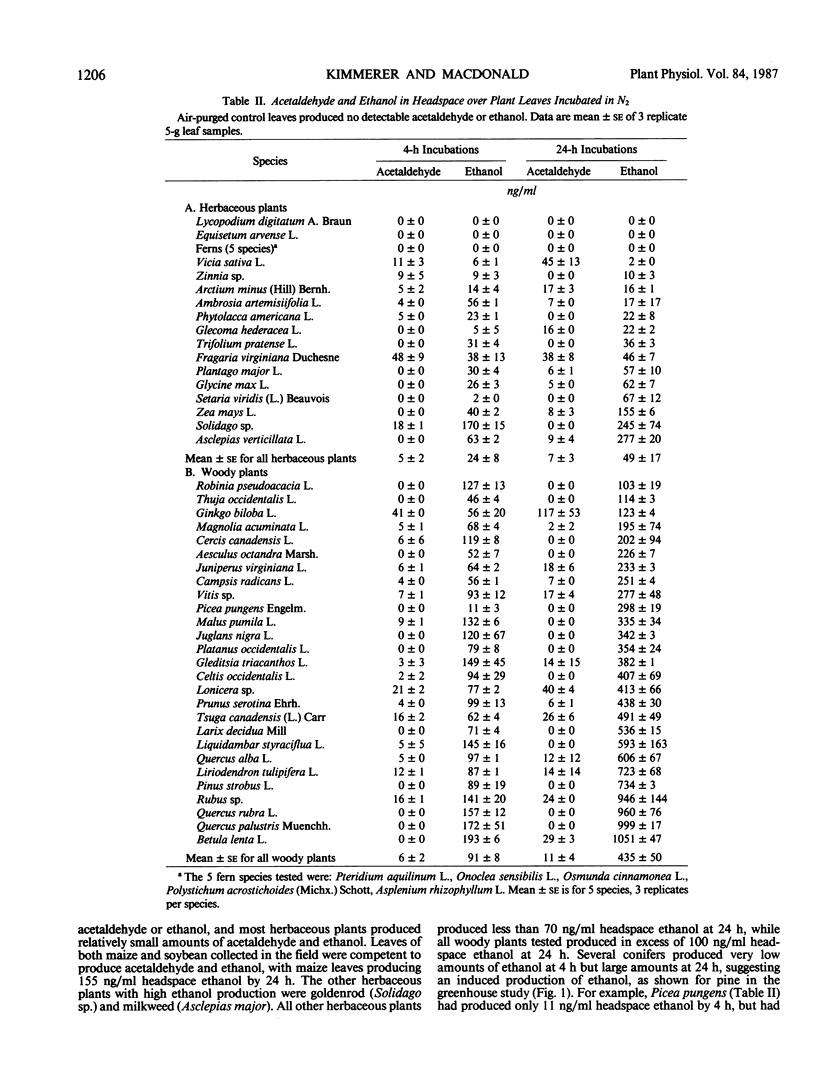
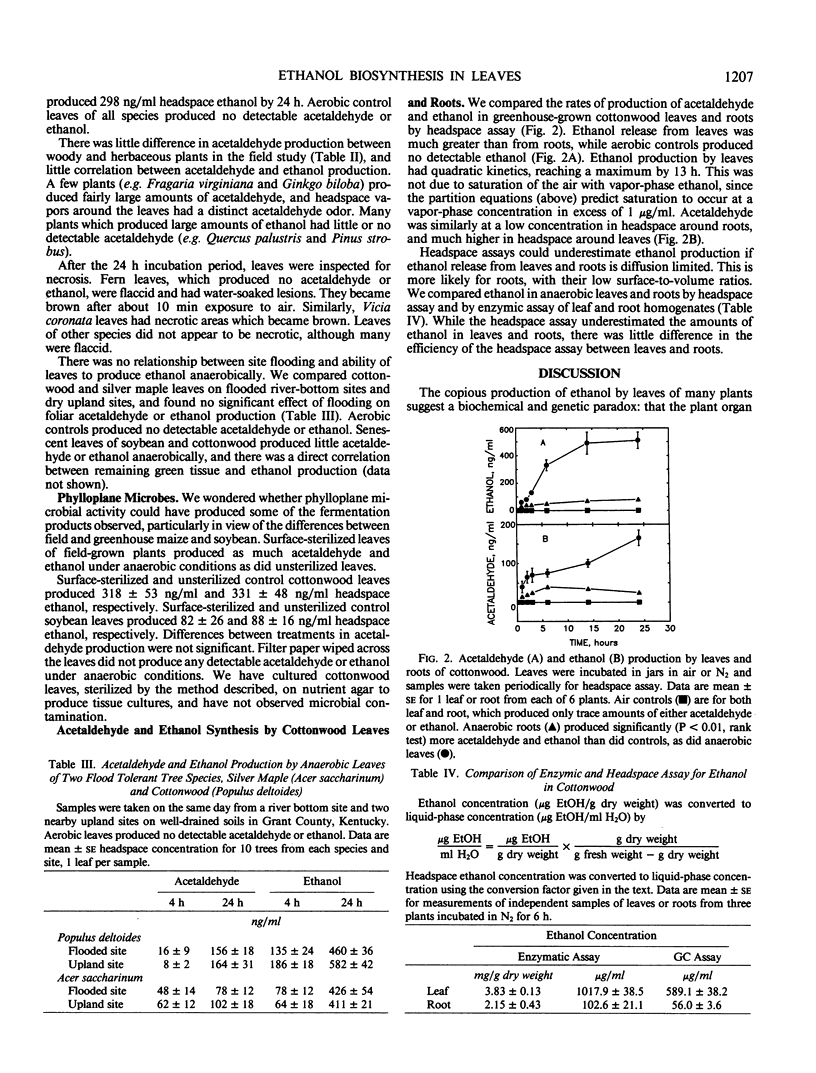
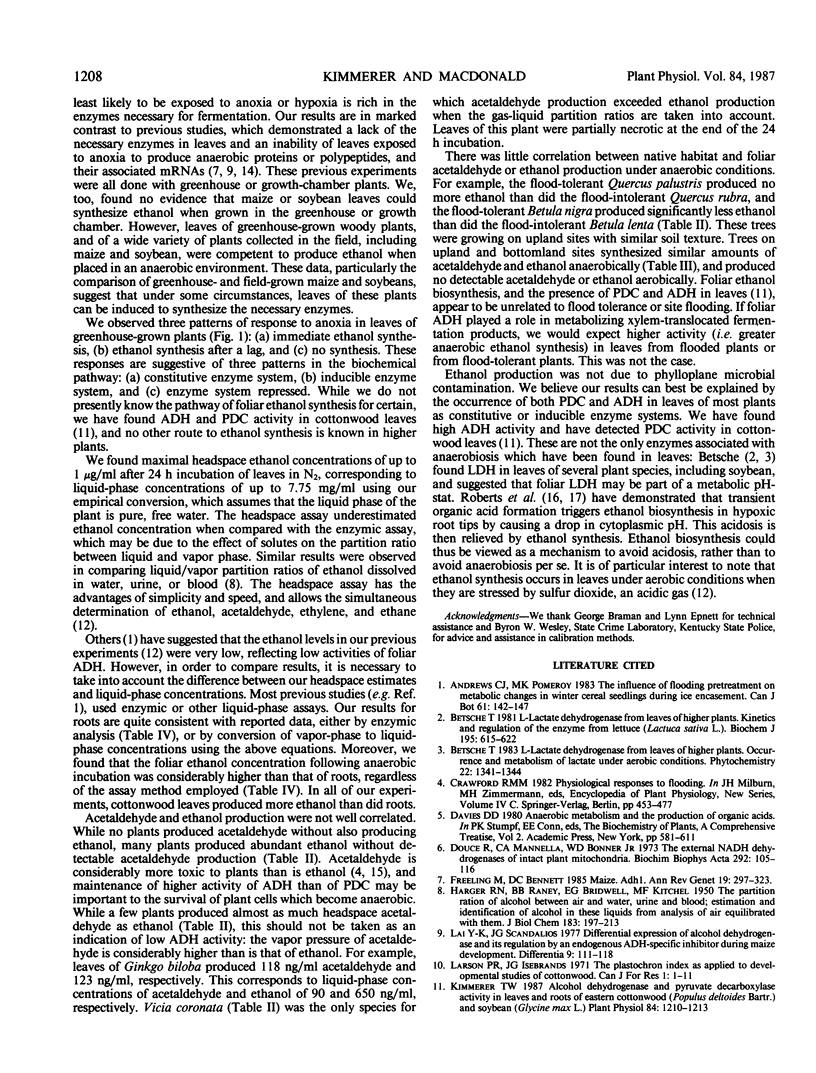

Selected References
These references are in PubMed. This may not be the complete list of references from this article.
- Betsche T. L-Lactate dehydrogenase from leaves of higher plants. Kinetics and regulation of the enzyme from lettuce (Lactuca sativa L). Biochem J. 1981 Jun 1;195(3):615–622. doi: 10.1042/bj1950615. [DOI] [PMC free article] [PubMed] [Google Scholar]
- Douce R., Mannella C. A., Bonner W. D., Jr The external NADH dehydrogenases of intact plant mitochondria. Biochim Biophys Acta. 1973 Jan 18;292(1):105–116. doi: 10.1016/0005-2728(73)90255-7. [DOI] [PubMed] [Google Scholar]
- Freeling M., Bennett D. C. Maize Adh1. Annu Rev Genet. 1985;19:297–323. doi: 10.1146/annurev.ge.19.120185.001501. [DOI] [PubMed] [Google Scholar]
- Kimmerer T. W. Alcohol Dehydrogenase and Pyruvate Decarboxylase Activity in Leaves and Roots of Eastern Cottonwood (Populus deltoides Bartr.) and Soybean (Glycine max L.). Plant Physiol. 1987 Aug;84(4):1210–1213. doi: 10.1104/pp.84.4.1210. [DOI] [PMC free article] [PubMed] [Google Scholar]
- Kimmerer T. W., Kozlowski T. T. Ethylene, Ethane, Acetaldehyde, and Ethanol Production By Plants under Stress. Plant Physiol. 1982 Apr;69(4):840–847. doi: 10.1104/pp.69.4.840. [DOI] [PMC free article] [PubMed] [Google Scholar]
- Roberts J. K., Callis J., Jardetzky O., Walbot V., Freeling M. Cytoplasmic acidosis as a determinant of flooding intolerance in plants. Proc Natl Acad Sci U S A. 1984 Oct;81(19):6029–6033. doi: 10.1073/pnas.81.19.6029. [DOI] [PMC free article] [PubMed] [Google Scholar]
- Roberts J. K., Callis J., Wemmer D., Walbot V., Jardetzky O. Mechanisms of cytoplasmic pH regulation in hypoxic maize root tips and its role in survival under hypoxia. Proc Natl Acad Sci U S A. 1984 Jun;81(11):3379–3383. doi: 10.1073/pnas.81.11.3379. [DOI] [PMC free article] [PubMed] [Google Scholar]
- Scandalios J. G., Felder M. R. Developmental expression of alcohol dehydrogenases in maize. Dev Biol. 1971 Aug;25(4):641–654. doi: 10.1016/0012-1606(71)90009-1. [DOI] [PubMed] [Google Scholar]



